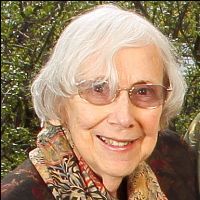Event Details
When
Where
Via Zoom
Dr. Helen Fein was one of the four co-founders and first president of the International Association of Genocide Scholars, and the founder of the Institute for the Study of Genocide. Helen held a Ph.D. in sociology from Columbia University and was a pioneer in genocide studies, as a scholar and activist. Her landmark work Accounting for Genocide (University of Chicago, 1979) received the American Sociological Association’s Sorokin Award. Her groundbreaking work continues to influence scholarship in genocide studies and prevention as well as related fields of study.
Panelists
Joyce Apsel: Apsel is a Clinical Professor in the Liberal/Global Studies Program of College of Arts & Sciences at New York University and is the President of the Institute for Study of Genocide. Her research interests are in comparative genocide, human rights and peace studies. Her works include Genocide Matters: Ongoing Issues an Emerging Perspectives coedited with Ernesto Verdeja and Peace Museums: Transforming Cultures,co-edited with Clive Barrett.
Alexander L. Hinton: is a Distinguished Professor of Anthropology and Director of the Center for the Study of Genocide and Human Rights at Rutgers University Newark, as well as UNESCO Chair on Genocide Prevention, and author or editor of seventeen books, including It Can Happen Here: White Power and the Rising Threat of Genocide in the US (NYU, 2021), The Justice Facade: Trials of Transition in Cambodia (Oxford, 2018) and, most recently, Anthropological Witness: Lessons from the Khmer Rouge Tribunal (Cornell, 2022).
Jocelyn Getgen Kestenbaum: is an Associate Professor of Law at the Benjamin N. Cardozo School of Law where she directs the Benjamin B. Ferencz Human Rights and Atrocity Prevention Clinic and the Cardozo Law Institute in Holocaust and Human Rights (CLIHHR). Her scholarship focuses on human rights, public health, and atrocity prevention, especially related to preventing and responding to sexual and gender-based crimes, slavery and the slave trade, genocide Indigenous rights and human rights violations against other minority groups. She is the co-editor of Public Health, Mental Health, and Mass Atrocity Prevention (Routledge, 2021) and has authored a number of articles on human rights. She holds a J.D. from Cornell Law School and an MPH from the John Hopkins University Bloomberg School of Public Health.
Elisa von Joeden-Forgey: is currently the Endowed Chair in Holocaust and Genocide Studies at Keene State College. She previously served as the Dr. Marsha Raticoff Grossman Professor of Holocaust and Genocide Studies at Stockton University. Her research focuses on genocide prevention, gender and genocide, comparative genocide, the Holocaust, sexualized violence, imperialism, race and war.
Ernesto Verdeja: is the Executive Director of the Institute for the Study of Genocide and an Associate Professor of Political Science and Peace Studies at the University of Notre Dame. He is the author of Unchopping a Tree: Reconciliation in the Aftermath of Political Violence (Temple University Press, 2009). He has published articles in Constellations, Perspectives on Politics, Contemporary Political Theory, The Review of Politics, The European Journal of Political Theory, International Political Science Review, Res Publica, Metaphilosophy, Genocide Studies and Prevention, and Contemporary Politics, as well as numerous chapters in edited collections. His research interests include large-scale political violence, transitional justice, reconciliation, and trials, truth commissions, apologies and reparations.

Co-hosted by the Institute for the Study of Genocide and the Center for Holocaust and Human Rights at Cardozo School of Law, join us for a timely discussion as we honor the work of Dr. Helen Fein and examine the future of genocide studies.
